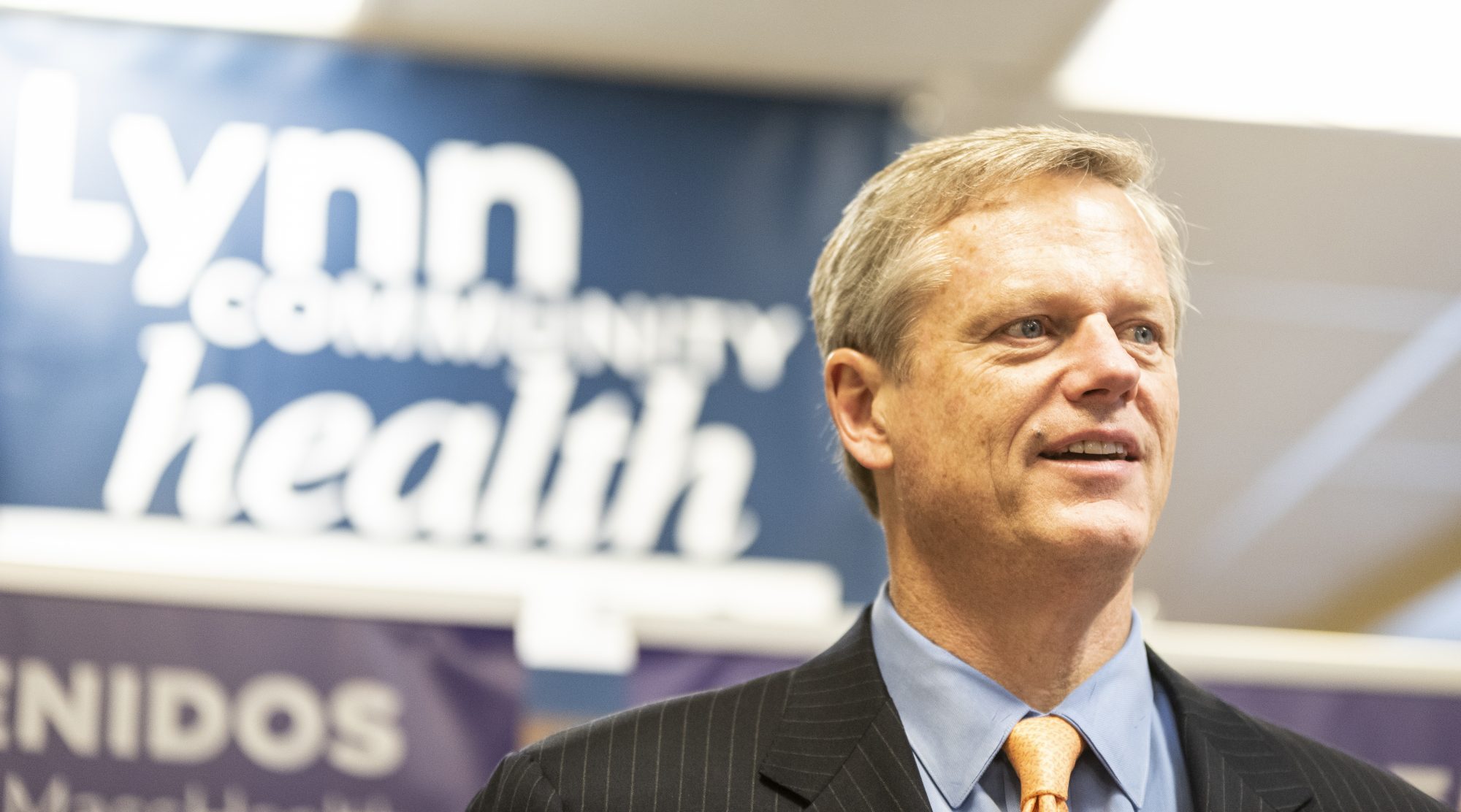LYNN — The city’s community health center is slated to get a piece of the state’s $50 million investment in opioid addiction treatment.
Gov. Charlie Baker, Secretary of Health and Human Services Marylou Sudders, and her assistant secretary Daniel Tsai announced the five-year funding program during an appearance at the health center on Thursday. The new initiative will bolster the efforts of 35 facilities across the state.
“It’s great to be in my neighborhood,” said Baker. “I’ve been visiting this health center for a very long time. It is a classic representation of health centers across the commonwealth.”
Not only does the investment expand access for opioid addiction treatment in community health centers, it will also further provide treatment for adults with behavioral health needs. Over the next five years, the funding will increase provider rates for psychiatry services and medical visits to children and adults and MassHealth will improve access to school-based health centers, beginning Jan. 1, 2019.
“The funding will provide added financial reimbursement for treatment provided by community health centers and the important work they are doing to address the opioid epidemic,” said Sudders. “We are making a deliberate effort to invest in behavioral health care throughout the commonwealth. In fact, this administration has committed to making more than $1.9 billion in behavioral health care investments over these next five years.”
Sudders and Baker noted that the Lynn health center is at the forefront of integrated, community-based treatment for patients with a substance use disorder (SUD). In March, MassHealth implemented 17 Accountable Care Organizations (ACOs), a network of physicians, hospitals, health care providers, and certain community health centers that are responsible for the quality and total cost of care for their MassHealth members.
As part of the Community Care Cooperative ACO, Lynn has a multidisciplinary Complex Addiction Team that provides SUD care and office-based Suboxone services in primary care, according to a press release from the Baker-Polito administration. The local center is partnering with North Shore Medical Center, Union Hospital, and Bridgewell to coordinate the treatment of MassHealth members who end up in the emergency room for substance abuse treatment.
The goal of the program is to connect those patients with recovery coaches from Bridgewell within 24 hours.
“The relationship of a patient and a recovery coach provides a connection on a unique and personal level, which during that time period, is most important for the patient,” said Jimmy Billings, a recovery coach and case manager at Bridgewell.
At the end of the event, it was time for questions and Gregg Vienneau, of Lynn, had only one in mind. He asked Baker whether the funding would spread to recovery coaches working with smaller agencies, such as the Healthy Streets Outreach Program. Baker said, circumstantially, yes, and noted he hopes to create a program where people can get certified to become recovery coaches.
“Right now we are one of very few states with a dropped death rate in relation to the opioid crisis,” said Baker. “This is the first time there is a sense where there are things working that we can build on. We will continue to battle this relentless epidemic.”
In 2017, there was a 4 percent decrease in opioid-related overdose deaths from 2016, according to the Massachusetts Department of Public Health’s (DPH) latest quarterly opioid-related deaths report. The presence of fentanyl in the toxicology of those who died from opioid-related deaths rose to nearly 90 percent in 2018, according to the press release.
“This is a whole new set of challenges we need to figure out,” said Baker. “But there are a lot of people who have worked very hard to get the momentum we have right now.”

